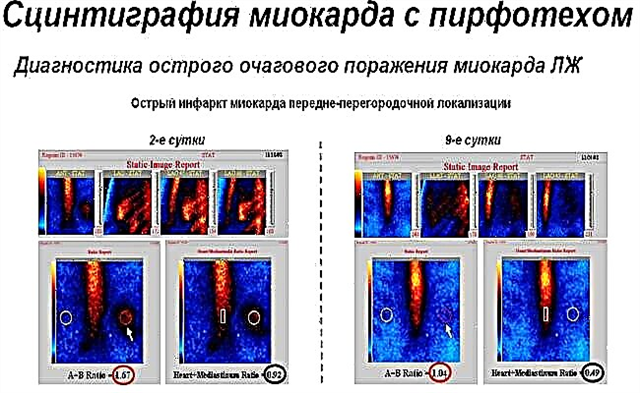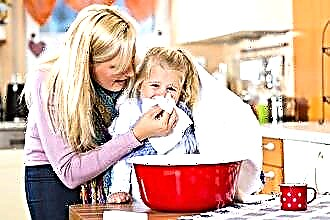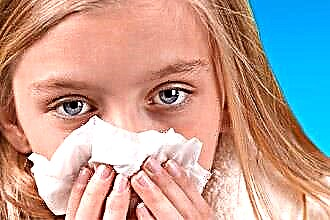A strong paroxysmal cough in a child always worries parents. And it is right. Although it can be not only a symptom of a viral disease, but in any case, it greatly irritates the larynx, can cause sore throat and even damage to the vocal cords. Therefore, treatment is necessary, but first you need to establish the cause of the attack.
Non-infectious causes
 The easiest way is to first exclude non-infectious causes of cough, since it is enough to eliminate them, and the problem immediately disappears. Most often, attacks of severe coughing are caused by:
The easiest way is to first exclude non-infectious causes of cough, since it is enough to eliminate them, and the problem immediately disappears. Most often, attacks of severe coughing are caused by:
- allergic reactions - children have a narrower lumen of the larynx than adults and they have a cough even with weak exposure to an allergen;
- chemical or physical irritation - causes inflammation of the mucous membranes and reflex cough dry and barking;
- dehydration - at too high a temperature or low air humidity, the mucous membranes of the nose and throat dry out quickly, the baby begins to cough;
- foreign body - this happens especially often in young children during the period of teething, when everything that falls under the hands is sent to the mouth;
- chronic diseases - broncho-pulmonary, heart failure, some diseases of the gastrointestinal tract.
Attacks of dry cough in a child for the reasons listed above are not accompanied by fever or other symptoms characteristic of respiratory diseases. It is not difficult to cope with them - it is enough to eliminate the irritant and relieve inflammation of the mucous membrane, if present.
An allergic cough can be easily stopped with antihistamines.
If a severe cough in a child is accompanied by fever, runny nose, weakness, lack of appetite, urgent treatment is necessary. These symptoms clearly signal that an infection is present in the body and the disease is developing in full swing. In the early stages, you can try to cure it with home remedies.
How to relieve an attack
There are several ways how to relieve a coughing attack in a child, and each of them is good in its own way. When the cause of the problem is known, it is easy to do. But until it turns out, you often have to act at random. Moreover, if the attack happened at night, and there is no way to consult a doctor or buy fast-acting pharmaceutical preparations.
In any case, don't panic. Here is the simplest algorithm for what to do if an attack occurs suddenly:
- Change the position of the child's body so that the head is in an elevated position or sit him in the crib.
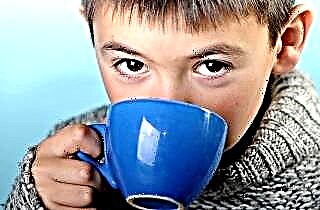 Give the baby a warm drink - chamomile broth, water with honey, linden or raspberry tea.
Give the baby a warm drink - chamomile broth, water with honey, linden or raspberry tea.- Provide an influx of fresh air - open the window, but at the same time make sure that the child is not in a draft.
- Humidify the air - place a container with water near a working heater or spray water from a spray gun.
- If the cough persists, use antihistamines (only for children).
- Steam inhalation helps to relieve an attack of dry cough in a child, or you can simply bring him into the bathroom and turn on a hot shower - it will quickly be filled with steam.
It is not recommended to relieve the attack with antitussive drugs unless prescribed by a doctor. Even with a large accumulation of mucus, the cough can be dry, without phlegm. This happens if the mucus is too thick and the child simply cannot cough it up. Antitussives inhibit the cough reflex and in this case only worsen the situation, contributing to the stagnation of sputum.
When the cough has calmed down, it is necessary to measure the body temperature. If it is above 38, give the baby antipyretic drugs: Panadol, Paracetamol, Aspirin. In the morning, it is advisable to consult a doctor. He will examine the child, if necessary, prescribe tests and tell you how to treat a cough in your case.
Folk remedies
 With regular use, folk remedies help not only quickly relieve a coughing attack in a child, but also prevent its reappearance. They are natural, safe and suitable for children of all ages. However, in case of infectious diseases, you need to carefully monitor the general condition of the child and if it starts to deteriorate even slightly, consult a doctor immediately.
With regular use, folk remedies help not only quickly relieve a coughing attack in a child, but also prevent its reappearance. They are natural, safe and suitable for children of all ages. However, in case of infectious diseases, you need to carefully monitor the general condition of the child and if it starts to deteriorate even slightly, consult a doctor immediately.
- Gargling. Better pharmaceutical antiseptics: solutions of chlorophyllipt, furacilin. You can use herbal teas or saline solution with the addition of iodine.
- Warm milk with fat. Cocoa butter, goat or badger fat will work at the rate of a teaspoon per glass of milk. You can add a pinch of baking soda.
- Ginger tea. Peel 2-3 cm of fresh ginger root, finely chop and pour boiling water over, add a slice of lemon with the peel. When it cools a little, strain, put a teaspoon of honey and drink in small sips warm.
- Honey with ghee. Combine in equal proportions, mix well, form a small candy out of it and give it to the child like a lollipop.
- Onion syrup. You will have to prepare it in advance. Peel 3-4 large onions, chop well, cover with a glass of sugar. After 1-2 hours, when the onions let out the juice, put on low heat and boil until the sugar thickens and acquires an amber color. Strain, give a teaspoon.
- Inhalation with cedarwood oil. It has the most potent antiseptic properties of all conifers. Pour a few drops into a container of hot water and let the child breathe over the steam. Not suitable for children under one year old!
Warming up has a good therapeutic effect: rubbing, compresses, salt bag, honey cake, paraffin therapy. Such procedures can be done only when the body temperature is below 37.2 and there is no blood and / or pus in the sputum.
Drainage massage helps to cough up accumulated mucus faster. It is performed with tapping movements when the child lies on his stomach with his head down. Sometimes pieces of mucus after it literally fly out of the bronchi, making breathing easier and speeding up the healing process.
Self-medication is prohibited
If a cough of an infectious nature cannot be removed quickly, it means that the child has a weakened immune system or you have chosen the wrong methods of treatment. It is impossible to start the disease - it is fraught with very serious complications. It is necessary to immediately stop self-medication and go to the doctor when the following symptoms appear:
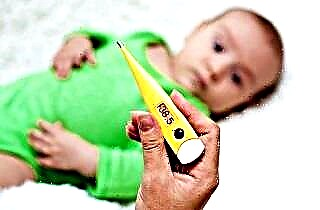 temperature above 38.5, which cannot be brought down for a long time;
temperature above 38.5, which cannot be brought down for a long time;- severe swelling of the larynx;
- signs of choking and / or oxygen deficiency;
- complete lack of appetite, weight loss;
- weakness, dizziness, fainting;
- blood clots or streaks in the sputum;
- white, frothy sputum;
- mucus of a strange color and bright color (yellow, orange, green);
- chest pains, wheezing, wheezing when breathing.
They can be signs of serious diseases: pneumonia, purulent bronchitis, bronchial asthma, pleurisy, tuberculosis, pulmonary emphysema, diphtheria, croup, etc. Incorrect treatment or its absence in this case can even lead to death.
Before the arrival of the doctor, it is necessary to pay attention to all the symptoms of the disease: to control the temperature, the frequency of attacks, the color and consistency of sputum, the amount of mucus secreted. All this will help the doctor in making the initial diagnosis. He will deliver the final one only after carrying out the necessary tests and laboratory analyzes.
Drug therapy
 If the baby's body cannot cope with the infection on its own or with the help of folk remedies, the doctor will prescribe antibacterial drugs. Most often these are broad-spectrum antibiotics: Amoxiclav, Augmentin, Cefazolin, Clarithromycin, Cefpirom. Their dosage is calculated based on the weight, age of the child and the degree of development of the disease.
If the baby's body cannot cope with the infection on its own or with the help of folk remedies, the doctor will prescribe antibacterial drugs. Most often these are broad-spectrum antibiotics: Amoxiclav, Augmentin, Cefazolin, Clarithromycin, Cefpirom. Their dosage is calculated based on the weight, age of the child and the degree of development of the disease.
Dry paroxysmal cough is quickly removed by antitussive drugs. They are prescribed in cases where there is no sputum, and the cough is caused exclusively by irritation of the larynx: with pharyngitis, laryngitis, etc. They are not used in combination with mucolytic agents.
Cough syrups for children are varied, they act mildly. This is a great way to stop a coughing attack, relieve inflammation and sore throat. They thin phlegm and help remove it from the body. It is best not to give these medications just before bed, so that the child has time to clear his throat.
Antihistamines (Diazolin, Tavegil, Claritin, etc.) help not only with allergic cough. They are able to reduce the amount of mucus secreted and relieve swelling of the mucous membranes, thus making breathing much easier. They are often paired with antibiotics to prevent possible allergic reactions to them.
Immunomodulators (Interferon, Anaferon, etc.) are most effective in viral diseases. They activate the immune system and help it to cope with viruses faster, without destroying the beneficial microflora. They can be given to a child as a preventive measure during the massive spread of respiratory diseases.
Prophylaxis
Simple preventive measures often help prevent very serious illnesses such as bronchial asthma. It is rarely congenital, but mostly develops gradually, with prolonged irritation or inflammation of the larynx, from chronic bronchitis. So what should be done to prevent illness:
- temper a child - do gymnastics with him, massages, air and sun baths, rubdowns with cold water;
- dress the baby for the weather - make sure that he does not sweat and overcool while walking;
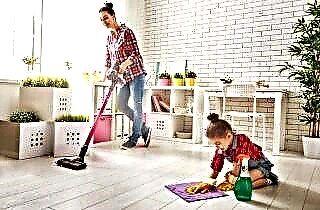 walking in the fresh air every day - only thick fog, strong wind, air temperature below -10 degrees and a baby's illness can be a reason for canceling a walk;
walking in the fresh air every day - only thick fog, strong wind, air temperature below -10 degrees and a baby's illness can be a reason for canceling a walk;- provide good nutrition - the menu should contain fresh fruits and vegetables, juices, organic products;
- cleanliness in the room - the child must breathe clean, slightly humidified air, the room must be ventilated at least 2 times a day;
- no allergens - even house dust, houseplants, animals, household chemicals (which should not be carried away during cleaning!) can be an allergen;
- contacts with children - they should not be limited, as this trains the child's immune system and gives him a lot of positive emotions.
And most importantly, do not trigger coughing fits. If the baby nevertheless fell ill, and it was not possible to get rid of it with home remedies in a few days, seek qualified help.
Remember also that the residual cough disappears within 2-3 weeks at the most. If it continues, an additional examination is necessary and, possibly, an additional course of treatment. You are fully responsible for the health and life of the child, so be attentive to even the smallest things until complete recovery.

 Give the baby a warm drink - chamomile broth, water with honey, linden or raspberry tea.
Give the baby a warm drink - chamomile broth, water with honey, linden or raspberry tea. temperature above 38.5, which cannot be brought down for a long time;
temperature above 38.5, which cannot be brought down for a long time; walking in the fresh air every day - only thick fog, strong wind, air temperature below -10 degrees and a baby's illness can be a reason for canceling a walk;
walking in the fresh air every day - only thick fog, strong wind, air temperature below -10 degrees and a baby's illness can be a reason for canceling a walk;